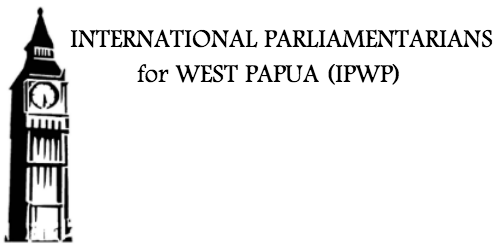Strong words from the EU Commission
This Monday, in answer to various questions posed by MEP and IPWP Vice Chair, President Carles Puigdemont, Vice-President and High Representative of the Union for Foreign Affairs and Security Policy, Josep Borrell, stated that ‘The EU encourages Indonesia to allow the UN High Commissioner for Human Rights to visit West Papua and has urged Indonesia to extend standing invitations to all Special Rapporteurs and Mandate holders.’
This unequivocal statement of support for the visit, made on the behalf of the EU Commission, adds to the growing number of individual states and regional bodies that have voiced concerns over human rights violations in West Papua and Indonesia’s continued denial of access for a visit from the UN High Commissioner for Human Rights. These include the Pacific Islands Forum (PIF) and the Organisation of African, Caribbean and Pacific States (OACPS– formerly ACP).
Borrell also responded to questions raised over the EU’s trade agreement with Indonesia, which went into its 11th round of negotiations last November, and whether or not Indonesia’s human rights record (in the context of West Papua) would be taken into consideration. He noted ongoing concern with regards to ‘the safeguarding of freedoms of expression, association, and peaceful assembly in West Papua’ and that there would be a need for respect for human rights to be ‘embedded in any Free Trade Agreement’.
With regards to the amount of funds the Commission has allocated to West Papua since 2001, a question also raised by Puigdemont, Borrell stated EUR 4.7 million had been sent, covering areas of ‘democracy, civil society, peace process, health care, education, and land-use planning’. He added that EU has also spent EUR 112 million funding projects in Indonesia related to climate change, deforestation, education, health and human rights, which includes operations in West Papua.
The EU itself has recently adopted a new business and human rights framework, which outlines mandatory human rights and environmental due diligence with regards to how funds are spent. In the case of West Papua, this raises questions on how this money has actually been spent by Indonesia and the obligations of the EU in providing them. The EU should not fund the Indonesian occupation and extraction of wealth from West Papua.
See here for a statement from the International Lawyers for West Papua (ILWP).
Support from individual EU member states
In a landmark intervention from the former colonial power, the Dutch House of Representatives also adopted their own motion calling for the UNHCHR to visit West Papua, on February 1.
This followed comments made last January by the Dutch Foreign Affairs Minister, who stated that, ‘it is important to have such a visit’ by the High Commissioner ‘as soon as possible’.
On March 18 2021, The Foreign Affairs Committee of the Spanish Senate also passed a motion calling on the Spanish Government to express its concern about the human rights situation in West Papua and urging the Government to also back the High Commissioner visit. In case of such a visit being continually blocked, the Senate pushed for the Spanish Government to support a motion on West Papua at the UN Human Rights Council.
In response to a follow up question, raised by Basque Senator and IPWP Vice Chair, Gorka Elejabarrieta, on the 2nd of December, the Spanish government affirmed their support for the visit to go ahead. In reference to the long-denied access, the response also noted that ‘support to OHCHR entails a general rejection of any deterrent measure adopted by national authorities to hinder visits and inspections on the ground’.
This was in addition to a strongly worded motion of support, unanimously passed by the Foreign Affairs Committee of the Basque Parliament, On October 8, 2021. The resolution noted that, ‘over 500,000 people have died in a genocide against the indigenous population,’ denounces human rights violations against West Papuans, and calls for a UN visit to the territory.
Supportive comments have also been made by the UK government.
The High Commissioner’s office has said that it still aims to secure access to West Papua, but that obstacles are being placed in its way by the Indonesian state. On November 30 last year the High Commissioner’s office put out a strongly worded statement condemning human rights abuses in West Papua.
Also on February 1, ULMWP prime minister of the Provisional Government, Edison Waromi, declared that they are ready and waiting to welcome the High Commissioner and that this is what the West Papuan people need from the international community.
As international scrutiny is intensifying, Indonesia is running out of excuses not to allow access to the UN High Commissioner for Human rights.
